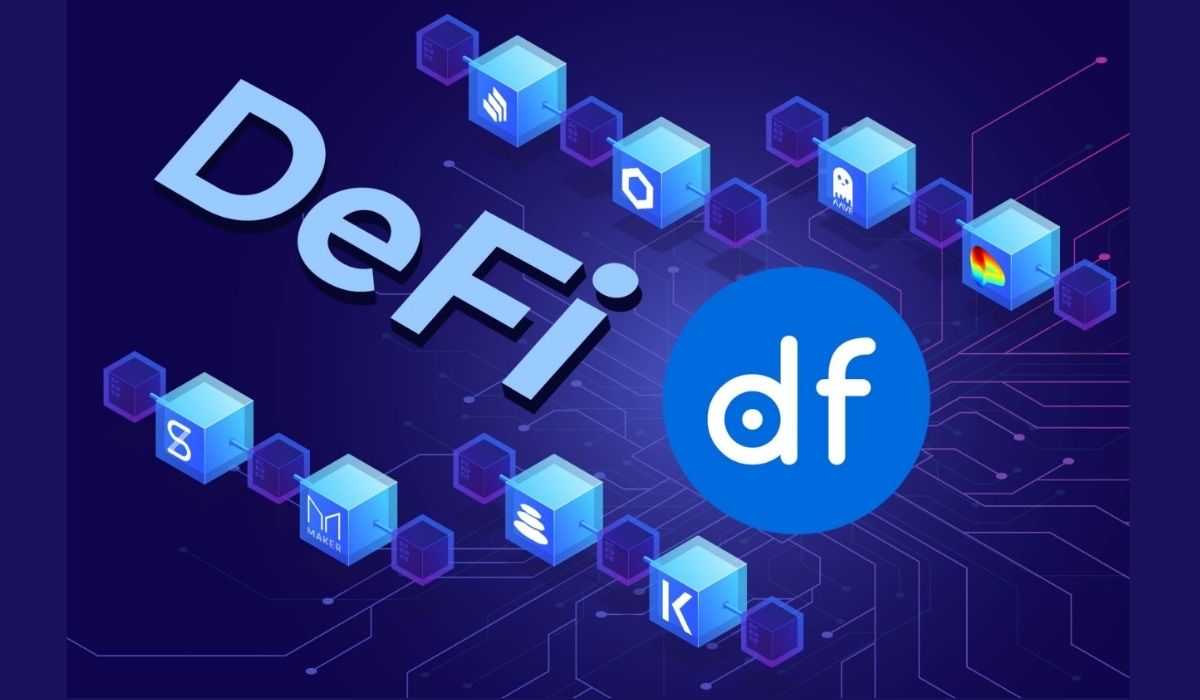Dfinance is a purely decentralized layer-2 network offering the infrastructure to create various financial instruments and DeFi tools with no technical skills required. It is a new project by Wings Stiftung Foundation who developed the WINGS DAO protocol – a decentralized forecasting platform for handling due diligence and price discovery. The team has since moved on from DAO to the Dfinance ecosystem.
The Need for the Project
The Dfinance team identified two disconnected worlds – traditional finance and DeFi. One is with vast financial knowledge yet very minimal or almost zero technical skill to show their creativity. One the other hand, the DeFi space, though growing rapidly, requires a lot of technological know-how.
Thus, the project offers composability to traditional finance, combining different assets, networks, and instruments just like building blocks to create complex tools and services.
Hence, serving as a bridge between the two worlds, Dfinance brings non-technical people opportunities to show their financial creativity in the decentralized finance arena.
How does it Work?
Working Principle
It utilizes Cosmos’s network Tendermint Proof-of-Stake for consensus mechanism and is built with Cosmos SDK. Tendermint is also used for security and p2p communications. The benefit of using this algorithm is its intrinsic Byzantine fault tolerance (BFT) feature, which can endure malicious or failing network nodes in arbitrary ways.
Its blockchain node is called dnode that performs all the core functions of Dfinance, such as reaching consensus, securing chain with PoS, processing transactions, p2p connections, etc. The top 101 validators, called active validators, produce blocks for a network fee and rewards. Each active validator will pre-vote every newly proposed block and also propose to block himself when his time comes.
The other important features include –
- The smart contracts are powered by Move Virtual Machine, developed by Facebook’s Libra blockchain. Therefore, it uses Move language for writing smart contracts.
- Decentralized oracles connect the platform with real-world financial instruments and data sources.
- The network will have a built-in inflation mechanism to incentivize network participants like validators.
Current Testnet Features
The project is in the early developing stage. The recently launched testnet 0.6, dubbed Balthier, brings forth essential features –
- It allows for 31 active validators.
- Introduction of DFI coin – a temporary solution to be replaced with the mainnet launches.
- Complete staking support for validators
- Slashing mechanism
- Enable developers to generate new DEX related transactions using the REST API
In the later version, Dfinance will introduce various liquidity staking mechanisms to enable delegators liquidity, borrowing, or other financial services through earned sDFI coins. Also, staking maturation time will be increased.
Staking & Slashing
The active validators get selected as per the amount of staked DFI bonded as collateral. The algorithm also allows any user to delegate (by locking them) his DFI coins to validators and receive part of those validators’ fees as per their staked DFIs.
There is also a punishment mechanism for unwanted validator activities with varied levels of slashing. For the current testnet version,
- Along with charging penalties 1% stake slash for missing blocks, the validator won’t participate in the consensus process until a manual release request is sent.
- Double signing attracts a 5% stake slash.
Note, a higher stake draws higher rewards.
PegZone
Dfinance uses a protocol called PegZone for value transfers between chains, therefore, allowing the deposited coins to perform the same as DFI. Currently, it supports Ethereum blockchain only i.e. ETh or any other ERC20 tokens.
PegZone incurs fees during depositing coins to Dfinance only, not when users withdraw. The minimum fee is 0.1% of the transacting value.
Dfinance Coins
DFI
Dfinance network’s internal currency is called DFI. It plays several roles in the network –
- To stake or delegate the coin.
- To pay fees for processing transactions.
- Used as a governance token for voting on updates, improvements, etc.
- To offer liquidity and loans with DFI
Dfinance’s present testnet version supports ETH, BTC, and USDT coins.
For every transaction, a sender pays a gas fee in DFI. While each validator determines the fee amount, the minimum fee is 1 DFI.
Dfinance Features for Use Cases
- DEX – Dfinance’s integrated DEX service is the means to both offer your financial instruments and access other financial products. Also, you can create your own DEX.
- Wallet – This is a web wallet that adds to product functionality as well as coin management.
- Interoperability Solution – Thanks to Dfinance’s high-level language, you can design and create trading strategies and set your products’ fees. The interoperability solution grants users to adopt various DeFi Yield Farming strategies.
Team
The Dfinance team comprises the four co-founders
- Boris Povod, R&D Lead –. R&D Lead of WINGS Stiftung, blockchain developer of Wings.ai, lead developer of Crypti.
- Sebastian Stupurac, Project & Product – Chainlab CEO, Strategy advisor to AdEx lab and INS Ecosystem
- Stanislav Oskin, Business Developer – Core and Business Developer for WINGS Stiftung, the Wings.ai DAO platform
- Arman Manukyan – A project adviser, analyst, and Wings investor. Also, a previous Angel Investor, Founder, and CMO of Crypti (Lisk.io).
Partnership
Dfinance has recently partnered with Elrond Network, a high-performance public smart contract platform to compete with centralized finance on equal footing.
The partnership creates a two-way gateway between the integrated platforms bringing composability. Elrond users can access existing instruments as well as build their own DeFi instruments on Dfinance platform. Also, Dfinance users will create new types of products like Elrond assets-collateralized products like stablecoins.
Announcing the partnership, Boris Povod stated,
“We aim to do for DeFi what Elrond is doing for blockchain – give everyone full access to its potential. I believe our collaboration has the potential to create a lot of value for the new economy.”
Conclusion
Dfinance is an ambitious project to add real value to the DeFi space by bringing non-technical financial wizards. With regular testnet upgrades adding robust features, this is likely to be a DeFi driver once the mainnet launches.




